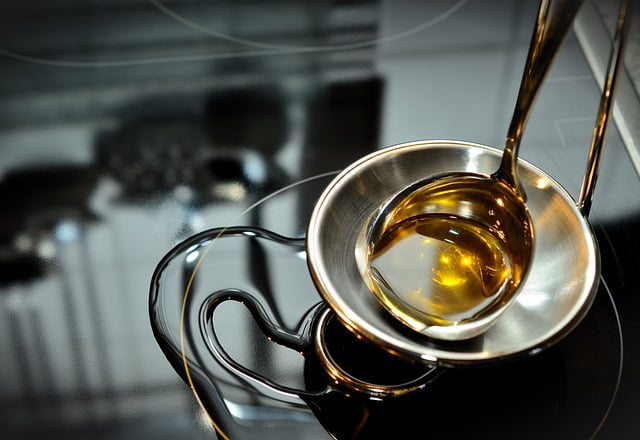There are various types of cooking oils, each with its own flavour profile, smoke point, and nutritional properties. Here are some common types of cooking oils:

- Vegetable Oil: This is a generic term often used to refer to a blend of different plant-based oils such as soybean, canola, and corn oil. It has a neutral flavor and a high smoke point, making it suitable for frying and baking.
- Olive Oil: Olive oil is a staple in Mediterranean cuisine. It comes in different varieties, including extra virgin (the highest quality and least processed), virgin, and regular (or pure) olive oil. It has a distinct flavour and is often used in salads, sautéing, and low to medium-heat cooking.
- Canola Oil: Extracted from the seeds of the canola plant, canola oil has a mild flavour and a high smoke point. It’s commonly used for frying, baking, and sautéing.
- Coconut Oil: This oil is derived from the meat of coconuts. It has a unique flavour and is solid at room temperature. Coconut oil is often used in baking, frying, and in some tropical cuisines.
- Sesame Oil: Made from sesame seeds, this oil has a rich, nutty flavor. There are two main types: light sesame oil (used for high-heat cooking) and dark sesame oil (used as a condiment for flavouring).

- Peanut Oil: Extracted from peanuts, peanut oil has a mild flavor and a high smoke point. It is commonly used for frying and deep-frying.
- Sunflower Oil: This oil is extracted from sunflower seeds and has a mild flavour. It has a high smoke point, making it suitable for various cooking methods, including frying.
- Avocado Oil: This oil is pressed from the flesh of avocados and has a mild, buttery flavor. It’s suitable for high-heat cooking, as well as in salad dressings.
- Grapeseed Oil: Made from the seeds of grapes, this oil has a light flavor and a high smoke point. It’s often used in sautéing, frying, and as a base for salad dressings.
- Corn Oil: Extracted from corn germ, corn oil has a mild taste and a high smoke point. It’s commonly used in frying and baking.

When choosing a cooking oil, it’s important to consider the cooking method, smoke point, flavour, and nutritional content to best suit your culinary needs. Additionally, moderation is key, as oils are calorie-dense.
For additional insights into the significance of cooking oils, please click on this link.
Explore this link to discover additional benefits of various types of cooking oils.

[…] To learn more about various types of cooking oils, kindly follow this link. […]